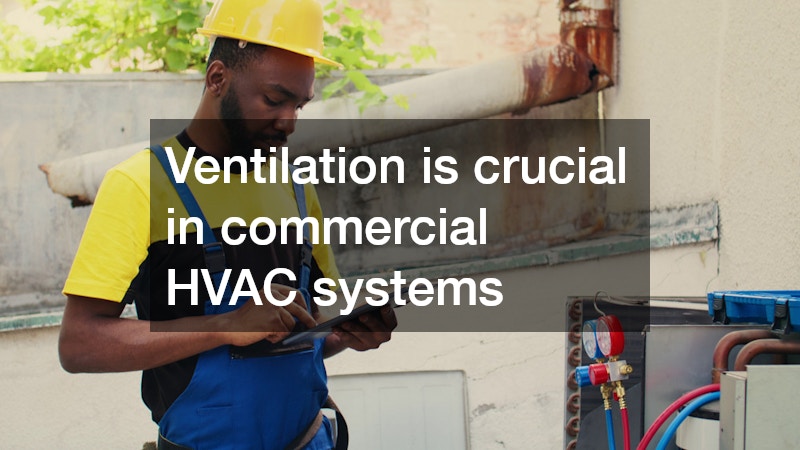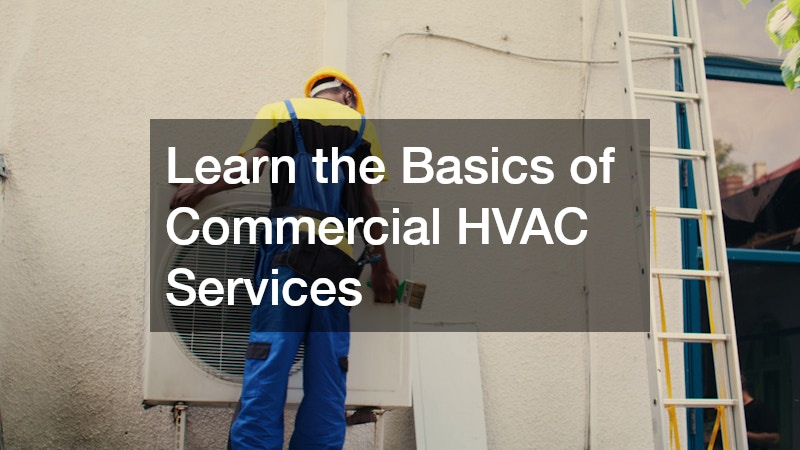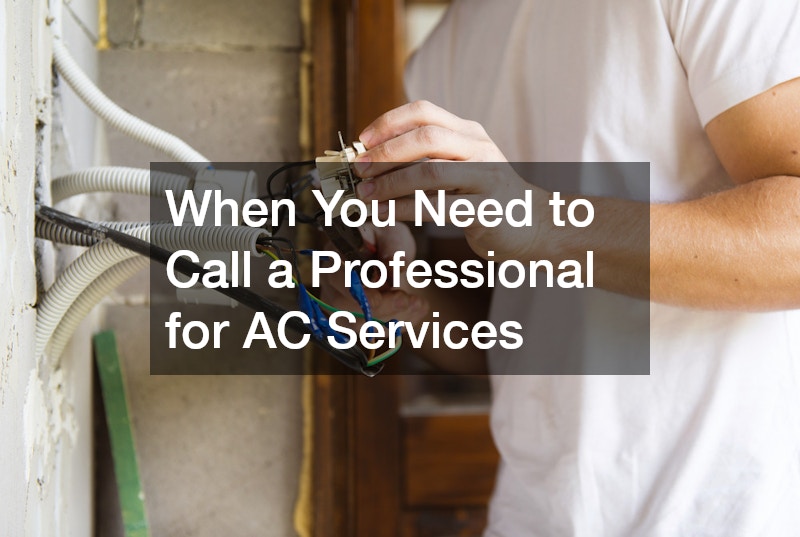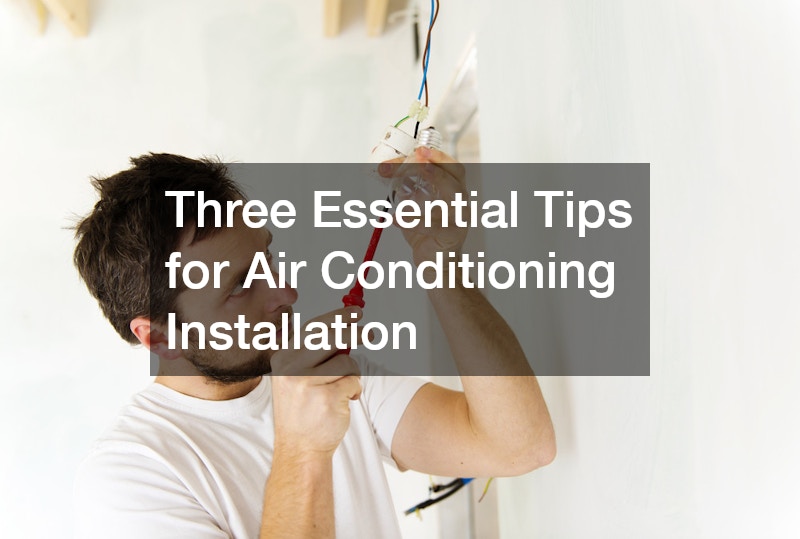When you own a business, it’s important to gain an understanding of commercial HVAC services and learn the answers to common HVAC questions. These key concepts are essential for understanding the importance and functionality of HVAC systems in commercial settings.
What are Commercial HVAC Services?
Commercial HVAC services encompass a wide variety of functions aimed at ensuring a building’s heating, ventilation, and air conditioning systems operate efficiently. The key components include the installation of new HVAC units, routine maintenance to prevent breakdowns, and immediate repair services in case of system failure.
All these services are vital for keeping indoor environments comfortable, especially in commercial settings where many people interact daily.
The installation phase typically involves assessing the specific heating and cooling needs of a commercial space, selecting the appropriate system, and coordinating the installation process to minimize disruption. During maintenance, trained technicians conduct thorough inspections, clean essential components, and replace filters to enhance system efficiency. Repair services address any unexpected issues that arise, ensuring operational continuity and comfort.
In addition to these core services, commercial HVAC providers may also offer energy efficiency audits, upgrades to more sustainable technologies, and emergency services. These offerings ensure that businesses can maintain a competitive edge while promoting a comfortable and healthy environment for employees and customers alike.
How Does HVAC Work in Commercial Buildings?
HVAC systems in commercial buildings function by integrating several processes aimed at creating a suitable indoor climate. The heating process begins with a furnace or boiler that generates heat, which is then distributed through a system of ducts or pipes. This ensures that temperatures remain comfortable, addressing the varying needs of different areas within the building.
Ventilation is crucial in commercial HVAC systems, as it replaces stale air with fresh outdoor air. This includes exhaust systems that remove pollutants and odors while ensuring proper air circulation throughout the building. Adequate ventilation contributes to indoor air quality, which is vital in settings like offices, schools, and retail spaces where many people congregate.
Air conditioning involves the removal of heat and humidity from the indoor air to enhance comfort during warmer months. This is achievable through various types of air conditioning units, including central, split, or ductless systems, which function by absorbing heat from the indoor environment and releasing it outside. Proper air conditioning is essential for maintaining a comfortable working atmosphere, especially in commercial spaces with high occupancy levels.
What are the Benefits of Regular HVAC Maintenance?
Routine maintenance of HVAC systems significantly enhances efficiency, which can lead to substantial cost savings over time. When systems are regularly serviced, they are less likely to experience breakdowns, which can lead to unexpected repair costs and loss of productivity. Regular checks also ensure that the system is running at optimal performance levels, contributing to lower energy bills.
Furthermore, consistent maintenance extends the lifespan of HVAC equipment, allowing businesses to maximize their investments. Well-maintained systems are less prone to wear and tear, leading to fewer replacements and operating disruptions. Many manufacturers also recommend routine servicing to keep warranties valid, giving businesses peace of mind with their HVAC investments.
Another key benefit of regular HVAC maintenance is improved indoor air quality. Maintenance includes changing air filters and cleaning ducts, which helps to reduce allergens, dust, and other contaminants in the air. This results in a healthier environment for employees and customers, promoting overall well-being and productivity. Organizations that prioritize HVAC maintenance are also likely to foster a better reputation, reflecting their commitment to quality and care.
What Should You Look for in an HVAC Service Provider?
Choosing the right HVAC service provider is crucial for ensuring that your system operates efficiently and reliably. When evaluating potential service providers, look for certifications and licenses that demonstrate their qualifications and expertise. A well-regarded HVAC contractor will typically have extensive training and certification from recognized industry organizations.
Experience is another significant factor to consider. A provider with a long history in the commercial HVAC sector will likely have dealt with a variety of systems and challenges. Their deep understanding of the industry allows them to offer tailored solutions based on your specific needs, ensuring that they can tackle any issues that may arise.
Lastly, reading customer reviews and testimonials can provide valuable insight into a provider’s reputation and service quality. Look for feedback regarding responsiveness, professionalism, and overall satisfaction. A reliable HVAC service provider will have a track record of positive reviews and referrals, indicating their commitment to excellent service and customer care.
How Can You Identify HVAC System Issues Early?
Recognizing HVAC system issues early can save your business money and prevent larger problems from arising. One of the first signs that something may be wrong is unusual noises, such as grinding, squealing, or banging, which can indicate mechanical failure. Addressing these sounds promptly with a professional can prevent further damage to the system.
Increased energy bills can also be a tell-tale sign that your HVAC system is not functioning efficiently. A sudden spike in utility costs compared to previous months may indicate that your system is working harder than necessary to maintain comfortable temperatures. Early intervention can help identify the root cause of the inefficiency, which may include dirty filters, duct issues, or system wear.
Another critical aspect to monitor is the temperature consistency throughout the building. If some areas remain hot or cold despite thermostat adjustments, it could indicate issues with ventilation or airflow. Paying attention to fluctuations in temperature can lead to addressing issues before they escalate, ensuring a comfortable environment for all occupants.
Understanding the basics of commercial HVAC services is crucial for ensuring a comfortable and efficient environment in any commercial setting. Proper maintenance and knowledgeable service providers play a key role in optimizing HVAC performance.




